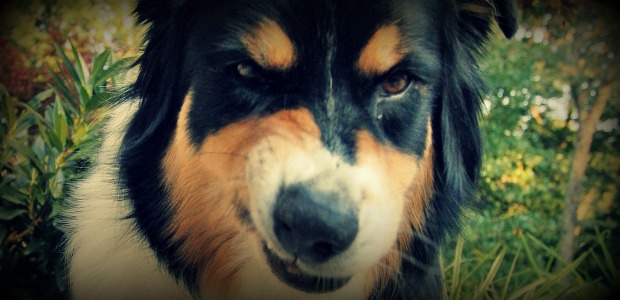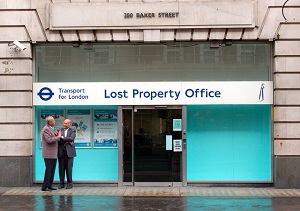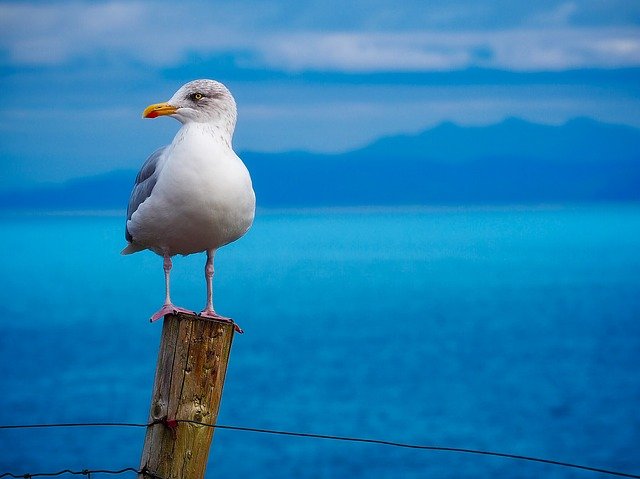You have no items in your cart. Want to get some nice things?
Go shoppingAn exclusive short story from Emma Jane Unsworth, author of Hungry the Stars and Everything and Animals. Emma will be reading as part of Litro Live! on 23 April. Further details of the event – and tickets – are available here.

I can make her laugh. Even if her laughter isn’t well meant. Even if it doesn’t suit her. Even if it’s one of the most appalling sounds ever to escape a human being and break free into the air. People in the gallery turn to see where the damp, crackly noise is coming from. The blank ovals of faces blur the corner of my eye but I don’t look back, don’t make eye contact, just keep pushing her along in her chair as she laughs.
She hasn’t asked any of the usual questions, and for once that seems kind rather than unkind on her part, and this makes me happy for another reason, too, because lately I have been accused of seeing the worst in people. I brought her here under the guise of getting her out for the day but we both know I’m really doing the rounds. Family. Friends. Saying my goodbyes before I move down south and start all over again, all over again.
I wheel her past a few more paintings. I’ve spent all of my art-appreciation spirit in less than half an hour, as per. For the past five minutes we have been talking about monsters. Which ones we’re the most like. I went for zombie, this week. She went for vampire.
“Not that I’d be able to catch much.”
“You could get them in their sleep.”
“How would I get up the stairs?”
“Just go for victims in bungalows. Make Fleetwood your primary hunting ground. Bognor Regis. Lytham St Annes.”
She lives in Burnley, in a ground-floor flat with a ruined terrier that doesn’t stop barking except to fill its face with human food: roast dinners, ham sandwiches. When we visited, the dog got bigger portions than us. Then my sister stopped visiting when the dog tried to attack the three-month-old baby and Nan didn’t intervene – just sat there as my sister walked out the room holding the baby over her head, the terrier pogo-ing round her, snapping its jaws. I had to put my mug of tea down to open the front door. Three terriers ago, a small chunk had been torn out of my sister’s face as she sat playing on the rug. It was a jealous dog. Nan liked jealous things. She was Old Testament in that way. I had a scar on my cheek from where she’d hit me for bouncing a tennis ball down the middle of the road on a caravan holiday. I think I was seven or eight and I kept dipping the ball in puddles and bouncing it because I liked the mark it left when it came off the tarmac. She was waiting under the awning (Playing in the road? I thought you were meant to be bright) and, in a bizarre display of intergenerational discipline, she hit me. She hit me with the back of her hand so her rings got me. Loads of kids saw.
“Shout if you want to stop and look at anything.”
“I’m not fussed.”
“We could go straight to the café?”
“Hmm.”
I feel her summon politeness, call it to her wrist, like a falconer.
“Let’s see a few more, then.”
I struggle with art. I don’t love it like I love books. Books trade something; they meet you in the middle. Paintings – well, it’s like they just stare. I love the gallery out of pure nostalgia. I’ve been coming here sporadically all my life. School trips, Sundays, even the odd doomed, try-hard date. This week I am saying goodbye to places as well as people. Killing my birds with as few stones as possible. I have taken my dad to the Air and Space Museum. I have taken my mum to the theatre. I have saluted my dead friend at her lamp-post. I have shamed myself in my local pub singing “My Way”. A capella.
I stop at a painting with dogs on it and pull the chair to one side so she has a better view.
“Ehh. That’s nice.”
“I thought you’d like it.”
“You should get a dog to keep you company in London.”
“I’ve got the cat.”
“Cats are no good. They act like they don’t need you.”
“Oh they’re not acting. Dogs are too needy.”
“It’s nice to be needed.”
“Yes but it’s not nice to be needy. Think of the dogs for a minute, would you.”
“What are you on about?”
“Give a dog a job.”
“What?”
“That’s all dogs really want. A job. All this post-war pandering, treating them as pets. They’ve becomes nuisances as a result. People wonder why dogs bark. Well, they’re just doing what they think is their job. See how thrilled a dog is to fetch a stick? You think it’s playing. It’s not playing. It’s just glad of something to do. Like I said, give a dog a job.
“Maybe you should get yourself a job before you start doling them out to dogs.”
“I’m looking.”
“You’re bleeding mad going down there without a job.”
“There’s always bar work.”
I wheel her on, past more paintings, an extravagant dinner scene in a fancy gold frame. I relax my grip on the chair’s handles. It is something I have to remind myself to do, loosen my grip. At school I snapped pencils and pens; a confusing mixture of anxious and strong. She was in her early thirties when the MS came on, then my granddad died early and she started with the dogs. Sometimes I think I feel it coming, in the night – a spasm in my calf, a tingle in my ankle – although I know it’s not hereditary because I looked it up. Her MS was the great unspoken; illness being somehow a failure of will. Before the chair it was a shockingly light wooden stick that slid from the arm of her chair down the back of the radiator. When I pulled it back out and handed it to her she’d tap me on the arm with it, regally.
I take a few deep lovely breaths. My hangover is receding. It usually goes by 4pm, in time for the next drink. The gallery is quiet, mid-afternoon on a weekday. We reach the end of the first floor and wait by the lift. A few people walk up and wait with us and when the lift arrives they make a fuss of letting her in, moving far too much out of the way of the chair with their best You alright, love? faces. Good for them. Congratulations. Medals all round for the fashionably compassionate, in the art gallery. Fuck you. I feel her bristle, too. We can’t get her in a nursing home she likes. Who knows whether it’s the government or just everyone giving up on everyone else, secretly.
On the next floor there are portraits – royals, dukes, duchesses, babies.
“Would you look at that. Not a bonny one amongst ‘em.”
I stop to laugh. “That’s funny.”
“Well it’s true. Course, these days they’d all just buy their looks, wouldn’t they? They could get smaller noses and chins, all their money.”
I stop laughing. I have a big chin. I push onwards, to the landscapes, farms and ponds and too many trees. A vast painting rears slowly off the wall as we approach. It is six feet tall at least. It looms.
“Flatford Mill,” she reads.
I stop pushing. Turn the chair to face the picture.
“Pretty.”
“Doesn’t look much like a mill to me.”
The scene is green and blue and mote-filled, like it’s been painted in soft-focus. A horse is towing a barge in the foreground; in the background, dappled with tiny brush-strokes, a small building sits snug between the banks of a river.
“It’s a Constable on loan from the Tate.”
“A what on what from the what?”
She bluffs like this. No I’m more working class. No, I am. Both of us show-offs, really, wanting our piece of every pie. Everyone in Pendle MS club had known my GCSE results. I’d never been bought so much lemonade.
“Constable was a famous painter. The Tate is a famous gallery. In London.”
She sniffs. “Well, still looks nowt like a mill to me.”
I think of Blake, but there’s no point bringing Blake up. She wasn’t at school long enough.
“How old were you when you started in the mill again, Nan?”
“Thirteen.”
“Wow. I was starting my GCSEs. I was into Garfield.”
“I felt older, though. You did back then. It’s different now. Teenagers, they know nowt. No wonder women still feel young at 35.”
I remember odd days from back then. I remember nineteen. I remember Stella, who was driving so fast and so drunk and found at 2am in her pyjamas.
“Did you say you saw a mill move once?” I say it to the back of her head.
“I did. I did see one move.”
It was Sunday but she’d found herself walking as if she was going to work to get away from her father, an austere old Lancastrian whose favourite saying was I see all I hear all and I say nowt. It was misty in the valley but the mill was visible down the track, in silhouette. Halfway down the track she stopped as the mill rose on four thick legs, stepped sideways, and eased itself back down again. She ran home, not looking back.
I look at the painting. The mill could not be more different from the visions she has fed me: those monsters that squatted on the landscape, opening their mouths each morning to a stream of scowling girls. Did grit skip a generation? My mother was a softer sort. She’d sat on the carpet in front of me last week with an A4 pad of questions and a G&T (no ice) and began: Do you think you’ll ever find love again, at this point? Then cried. But they’d all lined up to push me out and through, and I was strong. I could drink men under the table. I could run 10k in an hour. I could sell my soul and say fuck you. My truly baffling mutation is that I have chosen to be alone.
I grip the chair handles, hard, to lose the feeling; close to something that’s been coming on the past few months, in the days as well as the nights, angering me, and yet I can’t shake it. It creeps in and sits on me. A sense of huge and horrible uselessness.
We reach the end of the second floor and wait by the lift again.
“What’s on the next floor, then?”
“Don’t know.”
“Thought you knew everything.”
I open my mouth and close it, for once, because I know, after all these loops, all these lost nights and brutal mornings, the grim corollary for someone devotedly unkind: the same voice talks to them, too, inside.
***
Last weekend: another fucking wedding. Two bottles on the table, one better than the other, this knowledge a firm nod to your demise (bon viveur-dom has claimed you, however proudly you might pencil your crosses in the liberal boxes) and the woman next to you asked you to pass the wine please and you, hideous wedding-drunken YOU – you didn’t think but you also did think in that you had already made the decision, it was you being as honest as you could, the animal, the creature, passed the cheaper bottle. And it was a bottle of wine. A foot of nothing. It was everything, though, about you. In for a penny. For pence. The cheapening of it all, the circularity.
***
When we get in the lift I push the down button not the up.
“Yes, I’ll have to go home and see my little dog.”
“Do you not even want to get a cup of tea?”
“No, I’ll have one at home.”
I think of her flat, and the three flats of hers that I’ve known; the same things packed into increasingly smaller spaces, her life boxed and reboxed, smaller, smaller still, until. A Welsh dresser writhing with china. A cabinet of orgiastic crystal animals. Now I smoked outside the front window on the communal verandah, catching her eye through the nets, knowing how much she missed her Silk Cut Ultras.
***
Outside on the street, it is cold and sunny. I’m barely in my own brain, I don’t think, as I leave her there at the bottom of the ramp and walk away in the vague direction of the tram stop. It’s like my eyes are glazed in the bright, like I’m in some sort of trance.
“Hey! Hey!”
Although, I can light a cigarette.
Emma Jane Unsworth’s latest novel, Animals, is released on 1 May. Read our interview here. She will be appearing alongside Glen Duncan, Charlie Hill, Naomi Foyle and Maia Jenkins – and musical guests Benin City and Lucinda Belle – at Litro Live! on 23 April. Further details and tickets are available here.

About Emma Jane Unsworth
Emma Jane Unsworth is a journalist and won the Betty Trask Award for her novel Hungry, the Stars and Everything (Hidden Gem, 2011) and was shortlisted for the 2012 Portico Prize. Her short story ‘I Arrive First’ was included in The Best British Short Stories 2012 (Salt). Animals will be released by Canongate Books on 1 May 2014. She lives in Manchester.




